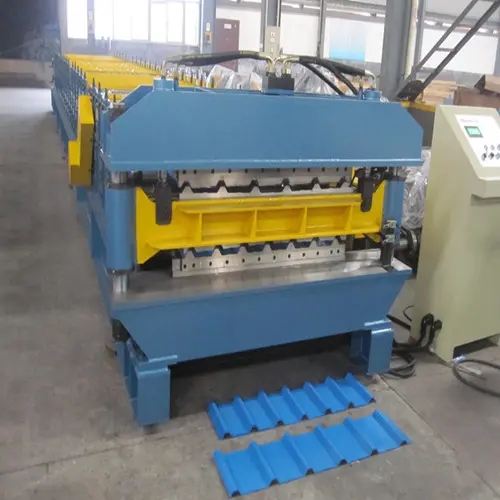
The Advancements in Steel Roll Forming Machines
Steel roll forming machines are essential in modern manufacturing, enabling the creation of various steel products efficiently and precisely. These machines are designed to convert flat steel sheets into various shapes and profiles through a continuous bending process. The versatility and efficiency of roll forming have made it a popular choice in industries such as construction, automotive, and appliance manufacturing.
A typical steel roll forming machine consists of several key components. The first is the entry section, where flat steel strips are fed into the machine. This is followed by a series of rollers that shape the steel into the desired profile. The rollers are designed to gradually bend the steel, ensuring consistent thickness and shape. The final product is then cut to the required lengths, allowing for quick production cycles and minimal waste.
One significant advantage of steel roll forming machines is their efficiency. These machines can operate at high speeds, producing large quantities of products in a short period. Unlike traditional methods which may require multiple processing steps, roll forming streamlines the manufacturing process by performing bending, shaping, and cutting in one continuous process. This not only saves time but also reduces labor costs.

Moreover, the customization options available with steel roll forming machines are extensive. Manufacturers can easily adjust the design of the rollers to produce a wide variety of profiles, from simple shapes to complex designs. This adaptability makes it possible to meet specific customer requirements without the need for extensive retooling. As industries evolve and demand for diverse products increases, roll forming technology remains at the forefront of manufacturing innovation.
Another significant development in steel roll forming technology is the integration of automation and computerization. Modern machines are equipped with advanced control systems that allow for precise adjustments and monitoring throughout the production process. This ensures consistent quality and minimizes errors. Additionally, automated systems can optimize production speeds and material usage, leading to even greater efficiency.
Sustainability is also a growing concern in manufacturing, and steel roll forming machines contribute positively in this aspect. The process generates less waste when compared to traditional methods, and the ability to use recycled steel further enhances environmental benefits. As industries strive for greener practices, the roll forming process stands out as a responsible choice.
In conclusion, steel roll forming machines play a crucial role in the manufacturing sector by providing efficient, versatile, and sustainable production solutions. As technology continues to advance, these machines are likely to become even more integral to the development of innovative steel products, driving growth in various industries. Whether for construction materials, automotive parts, or household appliances, the future of steel roll forming is bright and promising.